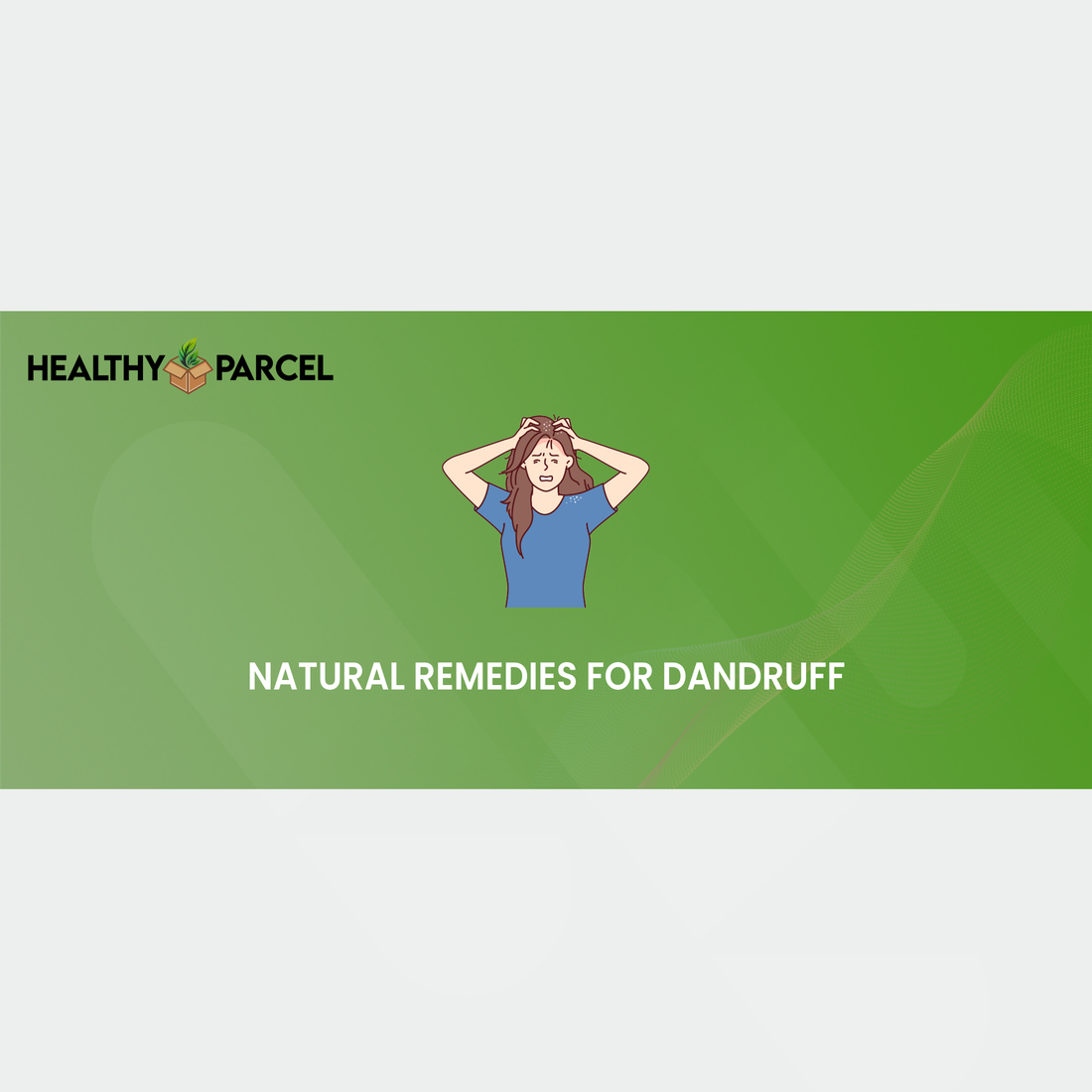Dandruff—those pesky flakes that fall from your scalp onto your clothes, eyebrows, mustache, and furniture—can be both embarrassing and annoying. It often makes you want to scratch your head constantly! While dandruff isn’t contagious or a serious medical condition, it can be a nuisance, especially in cold or dry weather and during times of stress.
What Is Dandruff?

Dandruff is a mild form of seborrheic dermatitis. It can be caused by:
- Irritated skin
- Dry skin
- Oily skin
- Malassezia (a yeast-like fungus)
- Sensitivity to hair care products
According to the Mayo Clinic, dandruff typically begins in young adulthood and can continue through middle age, especially in men. Conditions like psoriasis or eczema, certain diseases affecting the nervous system (such as Parkinson’s), and a weakened immune system can also trigger dandruff.
The Best Natural Ways to Handle Dandruff
Dandruff means your scalp is shedding dead skin cells. Since the scalp's skin renews itself roughly every month, dandruff can be a recurring issue. Many store-bought remedies contain harsh chemicals that might worsen the problem over time. Instead, consider these gentler natural and DIY remedies for effective results.
Shampoo

Since washing your hair is part of most people's daily routine, using a gentle shampoo with dandruff-fighting ingredients is essential. Look for components like 2% salicylic acid, zinc, aloe vera, tea tree oil, and chamomile. Studies indicate that other essential oils, such as rosemary and lime, may also be potent anti-dandruff agents due to their antimicrobial properties.
Tea Tree Oil

Tea tree oil, or Melaleuca alternifolia, is a common ingredient in many shampoos. It is both antibacterial and antifungal, making it effective against scalp infections. You can also make your own tea tree oil shampoo. First, test it on your wrist to ensure no reaction occurs. If it's safe, add two drops of tea tree oil per ounce of shampoo, close the bottle, and shake well before each use.
Herbs, Plants, and Minerals

Nature provides additional tools that can help with dandruff. Some are found in commercial hair care products, while others can be used in simple home remedies:
- Sapindus mukorossi (wild soapberry): An antibacterial and anti-inflammatory agent commonly found in shampoos and beard treatments.
- Zinc Pyrithione: An effective treatment found in shampoos that allows zinc particles to be deposited and retained on the scalp.
- Aloe Vera: Helps with scalp itching. It can be found in shampoos or used as a gel, massaged into the scalp for up to 30 minutes before shampooing.
- Fenugreek: An antifungal and antimicrobial agent. Soak 2 tablespoons of fenugreek seeds in 1 cup of water, then drain and crush them into a paste. Add a few tablespoons of apple cider vinegar and apply to your scalp for about 30 minutes before shampooing.
Dandruff Remedies from the Kitchen
You might already have effective dandruff remedies right in your pantry! If you decide to try these, don't use them all at once. Choose one, try it for about two weeks, and see how it works for you. Everyone’s dandruff can have different causes, so what works for someone else might not work for you. Always consult your healthcare provider before trying any new remedies.
Hair Masks

Hair masks are popular and can help nourish your scalp with healthy fats, which is important if anti-dandruff shampoos are drying out your scalp.
- Olive Oil: Often used in shampoos, it's also a DIY favorite.
- Coconut Oil: Great for dry scalp due to its moisturizing and mild antimicrobial properties. To make a hair mask, massage one or two teaspoons of coconut oil into your scalp, cover with a shower cap, and leave for a few hours before shampooing. You can add a small amount of tea tree essential oil to your oil mixture, using only one drop per ¼ cup of oil.
Salt Scrub

A homemade salt scrub can help remove flakes from your scalp. Gently rub a couple of tablespoons of salt (especially sea salt) into your scalp, shake out the excess, then shampoo and condition as usual. Check with your doctor to ensure a salt scrub is safe for you.
Baking Soda

Baking soda can help reduce fungi on an oily scalp.
Vinegar Rinse

Apple cider vinegar or white vinegar can change your scalp’s pH to discourage yeast growth. If your doctor agrees an imbalanced pH might be causing your dandruff, mix one part vinegar with one part water in a spray bottle. Spritz your scalp once or twice a week, wrap your head with a towel, and leave it on for up to an hour before shampooing.
Emerging Natural Therapies
New studies are exploring potential dandruff treatments, some of which are already appearing in shampoos and topical treatments. Here are a few to keep an eye on:
- Biotin and B Vitamins: Research suggests a link between biotin, vitamin B6, nicotinate, and pantothenic acid and a healthy scalp, which can help control dandruff.
- Microbiome Support: Just like your gut, your scalp has a microbiome. Certain pathways, such as N-glycan biosynthesis linked to fungal adhesion to the scalp, can create dandruff conditions. Others, like pathways involving B vitamins, can help control dandruff. Ask your healthcare provider about general microbiome support and whether you might benefit from an oral prebiotic or probiotic.
Conclusion
Dandruff is an annoying and sometimes embarrassing condition that causes flakes to shed from your scalp onto clothes, facial hair, furniture, and other surfaces. Fortunately, you don’t need harsh chemicals to manage it. Many natural ingredients are used in shampoos and topical treatments aimed at dandruff. Additionally, various home remedies and DIY options can help relieve a dry or oily scalp and reduce flakes. Research continues into natural methods for managing dandruff and related scalp conditions, offering hope for better treatments in the future.

